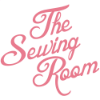Artificial Intelligence has revolutionized various industries. Let’s explore how AI can reshape creativity, product development, and logistics in the fashion industry. With the growing trend of using AI, fashion designers can leverage their power and enhance their prowess exponentially. Even though designers vary in their use of AI, it holds great power that can reshape fashion as we know it.
Design and Product Development
One of the key phases of the fashion industry is design and product development. Using AI, designers can enhance their creative cache with a multitude of ideas and suggestions. In this regard, AI can help designers gather numerous virtual prototypes. Using this repository, the designers can experiment without limitations, using different fabrics and colors, and implementing different styles. The result is the mix of creative elements that emerge from combining personal experience and AI.
AI, along with 3D design, also help designers with prototyping. When you can plug in the various aspects of a garment design such as fabrication, content, print and the pattern itself, a designer can see how the garment will perform under all sorts of conditions, testing both fit and wear, before it is created using the actual fabric. This speeds up the garment production process by eliminating the cost of shipping samples back and forth between factory and designer, while also reducing the fit iterations.
Creative Exploration
Similar to design and product development, designers are no longer worrying about Ideation. AI tools can be used to generate ideas that the designers can work on and improve. This can help boost overall collaboration between the human mind and technology, opening ways where the two can combine prowess to create exceptional products. Using various prompts, designers can come up with ideas that they can expand within their domain, helping them overcome creative blocks.
Visual Merchandising
Using AI, designers can get recommended styles as well as ideas for visual presentation. The AI tool does so by analyzing customer preferences as well as incorporating trends. Using the information, the results illustrate combinations that can improve overall merchandising outcomes as well as create more personalized products.
Fashion E-commerce
Running an e-commerce store isn’t easy, and running a fashion site adds another level of difficulty. However, by leveraging AI, fashion designers can easily improve the overall efficiency of their online stores. It can offer a comprehensive analysis of the customer buying trends. This helps the designers to analyze the patterns and behavior of the customers as well as their preferences, illustrating what appeals to them the most.
Using AI tools, such as Cala, TeeAi, FashionAdvisorAI etc., and running them consistently with reliable internet, such as Xfinity, designers can enhance their e-commerce sales by manifolds.
Omni-Channel Shopping Experience
Instead of targeting the customers via just one channel, designers can use AI to analyze different channels and that channel’s efficacy in terms of attracting more customers.
Incorporating AI tools can also help engage customers by offering them complete information about the products on different channels. A customer may find the store online but it can be engaged via social media by offering them product insights such as in-store availability, pricing, and more. This helps integrate the product inventory, making it convenient for the customers to find the product they’re looking for without actually visiting the store.
Virtual Reality Experience
One cannot turn a blind eye to how virtual reality and augmented reality technology have changed industries. Using VR and AR applications, designers can allow customers to experience the products without actually wearing them.
Not only does it help foster better customer relationships but also allows customers to connect further with the brands. The virtual ‘outfits’ allow customers to customize the dresses according to their sizes, colors, and more, giving them a more personalized experience. Consequently, it reduces returns, and customers are happier to buy from the brand again.
Enhanced Promotions
With access to AI tools, designers can engage in formulating better marketing strategies and enhance promotional activities. Similar to omni-channel interaction, designers can leverage AI to promote their products on various platforms.
In addition, these tools can also be used to track the performance of sales metrics, including impressions, interest shown, campaign performance, and more. Knowing these stats will help designers formulate their products and promotional campaigns that will attract the maximum number of clientele.
Sustainable Merchandising
Using AI tools, designers can create sustainable merchandising that would minimize waste and improve overall efficacy in terms of resource usage. Firms can easily find projected trends and generate forecasts for the required materials.
As a result, the manufacturers can minimize or maximize production as needed without having to produce in vain. Moreover, designers can use AI tools to strategize their inventory, adjust prices, and buy materials that they know are the most important based on the trends.
Quality Assurance
Quality matters a lot in the fashion industry and customers tend to drift from the brand when garment quality suffers. However, with AI tools, designers can not only reduce defects by detecting anomalies quickly, but they can also enhance overall quality by rejecting substitutions. A slight change in the material can disrupt the entire product line. Hence, with the help of AI tools, design houses can differentiate between stitching patterns, color gradients, and more, ensuring the overall quality of the material sourced.
The Future Holds More
With the growing use of AI in the fashion industry, we’ll be seeing more benefits and trends where AI stands side by side with the designers in terms of product creation.
sources:
https://www.leewayhertz.com/webinar-enterprise-ai-use-cases/
https://builtin.com/artificial-intelligence/ai-fashion
https://www.mckinsey.com/industries/retail/our-insights/generative-ai-unlocking-the-future-of-fashion


